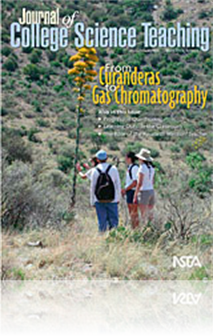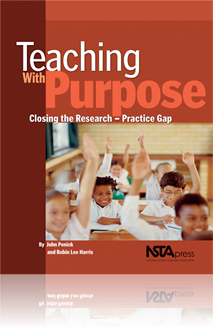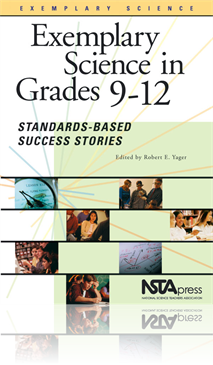All Resources
Journal Article
The Case Study: An Open or Shut Case? Contrasting Approaches to Case Study Design
The hallmark of an open-ended case study is the possibility of multiple outcomes to the problem at hand. This adds to its realism, provokes higher-ord...
Book Chapter
Making a Case for a Research-Based Teaching Rationale
This chapter demonstrates the importance of developing a detailed plan or rationale for teaching science that will help you achieve improved results i...
Book Chapter
Elements of a Research–Based Rationale
In Chapter 1, the 10 key aspects that most plans embrace were mentioned. This chapter looks more closely at how to address these 10 key aspects. Thi...
Book Chapter
Developing a Research–Based Rationale
Developing a research-based rationale requires formulating a way of thinking about teaching. Rather than a casual, weekend effort, the creation of a c...
Book Chapter
Implementing Your Rationale and Becoming a Mentor
In this chapter, the authors discuss how you can implement your rationale in the classroom and use it to become a mentor to others. As you develop and...
Book Chapter
It's the "Little Things" That Can Change the Way You Teach
The "Little Things" project is a unique curriculum on the soil ecology of microbes that offers students an opportunity to engage in real science resea...
Book Chapter
Sing and Dance Your Way to Science Success
The research in this chapter was conducted at Independence High School in Charlotte, North Carolina to determine whether creating a different kind of ...
Book Chapter
Student Inquiry at the Illinois Mathematics and Science Academy
This chapter features the Student Inquiry Program at the Illinois Mathematics and Science Academy (IMSA)—an internationally recognized, pioneering e...
Book Chapter
Teacher Action Research on Interactive Lectures: Engaging All Students in Verbal Give-and-Take
Amherst Regional High School is a public school located within a five-college community in western Massachusetts. Most of the work outlined in this ch...
Book Chapter
Stop Talking, Start Listening: Turning Didactic Science Teaching on Its Head
In this chapter, the authors hope to illustrate science instruction that focuses on real-world problems and features the science teacher performing a ...
Book Chapter
The Sky's the Limit: A More Emphasis Approach to the Study of Meteorology
This chapter features curriculum for the senior Meteorology elective at the Marymount School of New York—an all-female, independent school in New Yo...
Book Chapter
The author—a teacher at Rockwall High School in Texas—covers specific standards in this chapter which includes selecting and adapting curriculum, ...
Book Chapter
Successes and Continuing Challenges: Meeting the NSES Visions for Improving Science in High Schools
The 15 programs described in this book illustrate where we are with respect to realizing the vision of the 1996 National Science Education Standards (...
Book Chapter
Technology and Cooperative Learning: The IIT Model for Teaching Authentic Chemistry Curriculum
Computer technology emerged as a viable tool for classroom instruction. This chapter reflects upon a case study of a high school chemistry classroom w...
Book Chapter
Inquiring Minds Want to Know All About Detergent Enzymes
This enzyme unit demonstrates how students can learn using inquiry and questioning techniques. By providing students the opportunity to share ideas, e...




